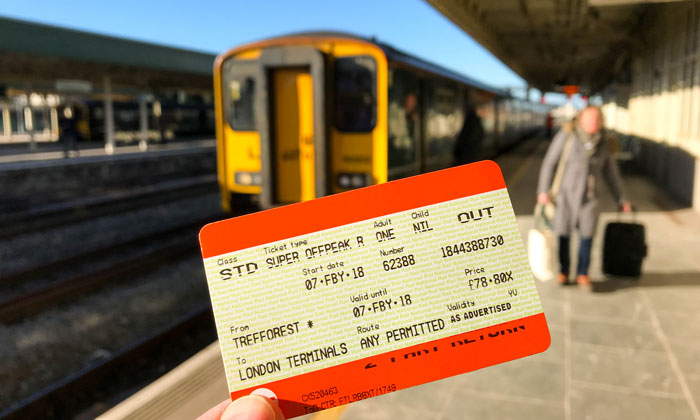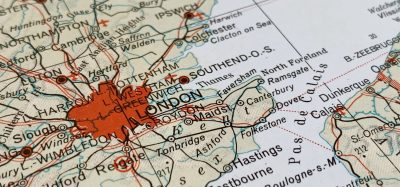‘Root and branch reform’ for rail fares is on the table
Posted: 8 May 2018 | Global Railway Review | 1 comment
Britain’s rail companies, from both the public and private sectors, are launching a public consultation to seek ‘root and branch reform’ of fares and ticketing regulation.


The announcement follows new research by professional service company KPMG, which shows that only one in three (34 per cent) rail customers are very confident that they bought the best value ticket for their last journey and fewer than one in three (29 per cent) were very satisfied with the experience of buying their ticket. Reforming fares has the potential to transform the buying experience for customers, making it easier for people to be confident they are getting the right ticket.
Well-intentioned, but ultimately counterproductive, regulations underpinning rail fares have remained unchanged from the mid-1990s, when the 1995 Ticketing Settlement Agreement outlined how fares should be set and sold. It assumes all customers will buy their ticket by visiting a ticket office and sets out in detail how customers must be able to buy a ticket from each of the 2,500 stations in Britain to every other station in the country.
Since then, further layers of requirements have been added through individual franchise agreements, with little or nothing taken away. This means that long-standing anomalies – such as ‘through-ticket peak-time premiums’ and inflexible season tickets – are becoming ingrained, resulting in bigger problems for customers, as there are now around 55 million different fares. As a result, it has become increasingly difficult for rail companies to guarantee the correct fare. Regulations have failed to keep pace with the rise of smartphone technology and the way that people work and travel today, with part time working and self-employment having increased by over a third in the last 22 years.
Reforming fares – what can be gained?
Updated, fit-for-purpose fares regulation would enable the right changes for the long term; hence the reason that the industry is choosing to work with Transport Focus, the passenger watchdog, to launch a public consultation next month. It will enable various groups to share their views, such as businesses, passenger groups, stakeholders, employees and the public regarding what a future range of fares should look like.
The consultation will help the industry to establish a road map that delivers against these principles. The industry wants to then work with governments to make fares simpler, easier and more trusted while continuing to enable investment in the railway.
To help frame the consultation, the Rail Delivery Group, which brings together all rail companies, has commissioned an independent report from KPMG to identify key principles that are driven by what customers and the country need from the railway. These principles should underpin a fares offering that is fit for the future and should include:
- Being transparent, predictable, fair, trusted, easier to use and value for money for customers
- Offering integration with other modes of transport
- Offering personalised, flexible fares that best serve customers in different markets
- Enabling growth, innovation, efficiency and choice
- Providing funding for investment and avoiding the need for additional taxpayer subsidy.
A final report will be informed by the consultation and will make proposals to governments with options for fares reform. The industry’s proposals will be designed to be neutral in overall revenue terms with no change in average fares and therefore not requiring any extra taxpayer support for the railway. A fares offering which is trusted, though, has the potential to attract more people to travel by train, which would support investment in rail or give governments the option to change the balance between taxpayers and farepayers for funding the railway.
Steve Wakeland, ITSO CEO, said: “It is fantastic that the consultation process is underway. The ever-growing passenger population needs a more efficient and up-to-date experience. We offer the only nationwide, interoperable smart ticketing scheme across all modes of public transport and our secure technology is already in place across a large part of the UK’s railway network. ITSO is well-placed to work with other transport operating companies to enable them to implement smarter ticketing technology.”
These requested changes are in addition to existing improvements already being made to fares. These include cutting jargon, clearer information about peak and off-peak times and better information about how people can use their ticket – part of a fares action plan agreed between industry, passenger groups and government. This is alongside the ongoing roll-out of smart ticketing, which will also help make it easier for people to buy the right ticket. Yet these changes alone will not go far enough in making things better for customers.
Commenting on the value of collaborative change, Paul Plummer, Chief Executive of the Rail Delivery Group, said: “As part of the industry’s plan for change, we want to work in partnership to drive root and branch reform of well-meaning but out-dated fares regulation. Working together, we want to develop proposals to reform fares and regulation to make it easier for our customers to get the right ticket, enhancing trust in the system and supporting continued investment to improve the service.
“There have already been improvements and more are on the way, but this consultation will enable us to create a clear roadmap with the country so that we can make the right changes for the long-term more quickly.”
Anthony Smith, Chief Executive of Transport Focus, said: “Rail passengers want a simpler, more understandable and modern fares system, which matches the way we now travel. Opening up the debate and looking at the pros and cons of various reform options is welcome. Transport Focus will make sure the passenger voice is heard in these debates.”
Today’s announcement is an example of the industry delivering on the commitments it made in its cross-industry plan – launched last year – to deliver simpler ticketing and better value for money for customers, and to keep changing and improving for the economy, customers, communities and employees.
Stay Connected with Global Railway Review — Subscribe for Free!
Get exclusive access to the latest rail industry insights from Global Railway Review — all tailored to your interests.
✅ Expert-Led Webinars – Gain insights from global industry leaders
✅ Weekly News & Reports – Rail project updates, thought leadership, and exclusive interviews
✅ Partner Innovations – Discover cutting-edge rail technologies
✅ Print/Digital Magazine – Enjoy two in-depth issues per year, packed with expert content
Choose the updates that matter most to you. Sign up now to stay informed, inspired, and connected — all for free!
Thank you for being part of our community. Let’s keep shaping the future of rail together!
Related topics
Related organisations
ITSO Limited, KPMG, Rail Delivery Group (RDG), Transport Focus









The usual nonsense about splitting a journey into separately ticketed sections is frequently mentioned.
One aspect I haven’t heard mentioned is restricting passengers from travelling on express services such as Cross Country when local operators provide alternative but much slower services.
Until I moved much closer to Birmingham, I used to travel from Basingstoke to Birmingham International in November to attend the Warley Model Railway Exhibition at the NEC. Obviously the Cross Country Service from Bournemouth was the quickest way to do the journey, but station announcements indicated that my ticket was not valid on the train. Most passengers ignored the restriction, and the train was always packed solid like a London Underground train in rush hour with visiting football fans resulting in standing all the way. There was no way a Guard could get through the train to check tickets. It was standing all the way back from Birmingham to Leamington Spa too. At my age, I’m glad I no longer have to do that journey.